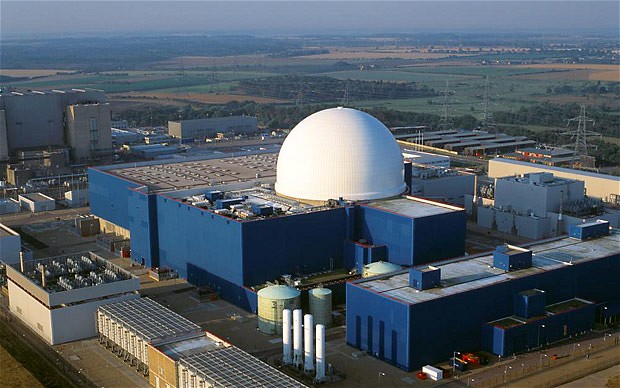Nuclear Reactors 183 - Most of Britain's Operating Nuclear Power Reactors Will Have to be Decommissioned in the Next Fifteen Years
I have blogged before about the aging nuclear reactors around the world and the need to decommission many of them in the near future. Today I am going to talk about the problems confronting the United Kingdom nuclear power industry. A panel of experts has stated that all but one of Britain's nuclear power reactors will have to be shut down within fifteen years because of economic and/or safety problems.
Almost all of the nuclear power reactors in Britain were built in the 1970s and 1980s with an expected lifespan of twenty five years. They have all been authorized to continue to operate beyond this twenty five year license. A former inspector of nuclear installations says that they are still operating safely for the time being. However, he said that the time will come soon when it will not be economical to operate them or they will be unsafe. One of the major issues with aging reactors that use graphite for moderating the nuclear reaction as the British reactors do is the fact that the cracks form in the graphite control rods as time passes. While it is not certain when the rods become unusable, it is certain that that day will come.
Closing all these existing power reactors would mean a loss of about twenty percent of the electricity generated in Britain. The only current reactor expected to be operating by 2030 is the Sizewell B power station.
Britain is working with the French company Areva to build a new nuclear power reactor at the Hinkley Point power station. There have been some problems with the Hinkley project including questions about foreign stakes in the new reactor. Areva has been encountering some financial problems lately but denys that they will affect the new Hinkley Point reactor. Despite vocal anti-nuclear groups in Britain, the public support for new nuclear power stations has been increasing recently.
While there is support for expanding nuclear power in the European Union, there are member nations that are turning away from nuclear power. Germany has declared that it is turning off all its nuclear power plants in favor of pursuing renewable sources of energy. France which gets the majority of it power from nuclear reactors is currently engaged in a heated debate about the future of nuclear power in France. Recent announcements by the French government about the future of nuclear powers indicate that the French public seems to be less supportive of nuclear power than in the past.
All over the world, the nuclear reactors from the period of intense reactor construction in the 1970s and 1980s are reaching the end of their lifetimes. Several reactors have been shut down in the U.S. recently because they were not able to be competitive in the energy market or they are getting too expensive to repair. Most of the old reactors will have to be decommissioned which is a complex and expensive process. Reactor operators in the U.S. are supposed to maintain a fund specifically for decommissioning but the NRC has been leaning on members of the nuclear industry who cannot prove that they have enough money in the fund. In addition, the cost of decommissioning is just going to keep rising.
All the nuclear power reactors in the world should be shut down and decommissioned as soon as possible. Every year that passes increases the cost of decommissioning and potential for serious accidents.
Sizewell B power station:
